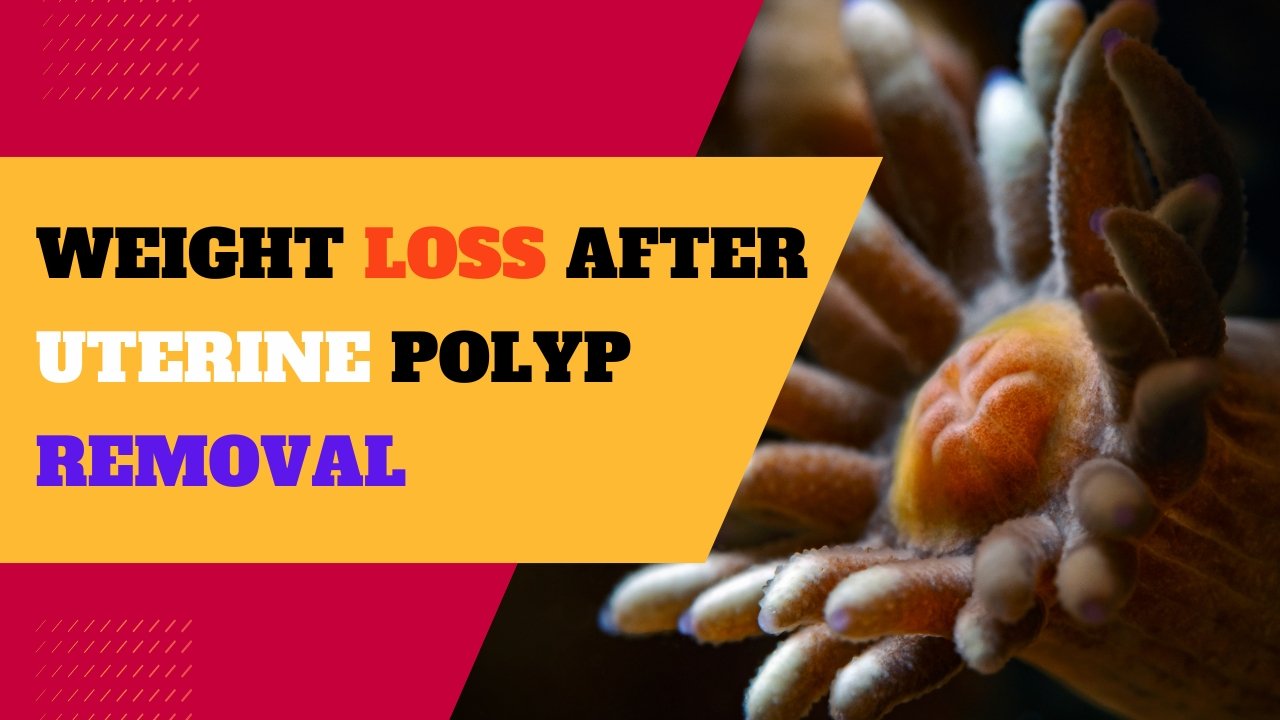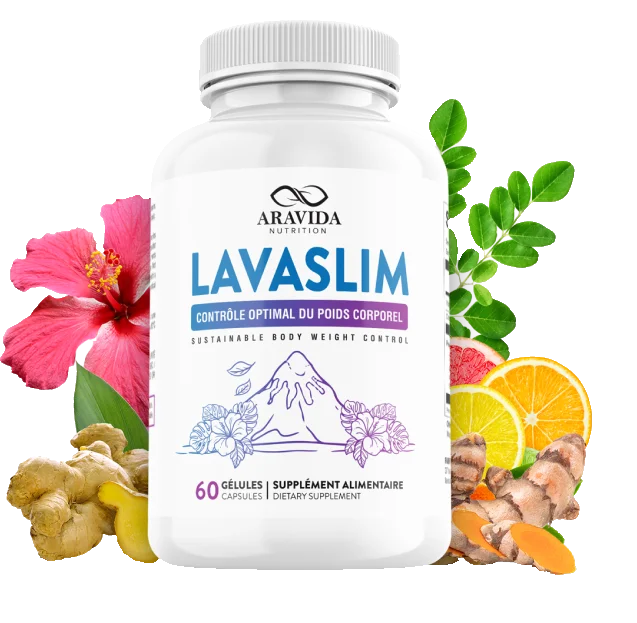The experience of uterine polyp removal is unique to every individual and is often accompanied by a myriad of physical and emotional changes. Among the many questions and concerns that patients might have, weight fluctuation can be a significant focus. This in-depth exploration is tailored for those on the path to or are currently experiencing weight changes post-uterine polyp removal. We’ll tackle what to expect, how to manage these changes healthily, and weight loss after uterine polyp removal.
What to Expect After Uerine Polyp Removal
Understanding the post-surgical body and its response to the procedure The first weeks following uterine polyp removal are crucial in understanding the body’s immediate changes. Patients often experience relief from pre-surgery symptoms and a general improvement in overall well-being. However, uterine polyp removal itself might not be a direct gateway to weight loss.

The Immediate Impact
In the days and weeks that follow, a slight reduction in weight might be noticeable due to the decrease in inflammation. However, this is often temporary and may not be significant for long-term weight management. The body’s natural healing process necessitates a balance of rest and gentle activity, which may influence short-term metabolic activity.
Managing Expectations
Every individual heals at a different pace, and weight changes are multifaceted. It’s essential to manage expectations and not fixate solely on immediate weight loss. Post-surgery, dietary adjustments and physical activity are critical, but they should align with a physician’s recommendations and a balanced approach to healing.
Weight Loss After Uterine Polyp Removal Reddit Forum Insights
An anecdotal portrayal of personal journeys Reddit forums are buzzing hives of personal experiences, offering insights into the nuances of weight management post-uterine polyp removal. Users share their stories, challenges, and occasionally, victories in their weight loss journeys.
The Human Element
By tapping into these communities, individuals can feel less isolated and more informed as they witness diverse accounts of post-operative weight changes. It is important to be discerning with this information, understanding that personal experiences vary widely and that individual medical advice is invaluable.
Finding Support and Encouragement
Engaging with these virtual communities can provide the emotional support needed to stay focused on one’s health. While it’s crucial to seek professional medical guidance, the personal camaraderie and shared tips can be empowering and inspiring.
Strategies for Healthy Weight Management Post-Removal
Developing your personalized plan for long-term wellness Weight management after uterine polyp removal is a gentle balance of patience, self-awareness, and proactivity. It’s about adopting sustainable habits that support overall health, rather than chasing drastic changes.
Starting with Nutrition
Post-surgery, the diet becomes a crucial aspect of the healing process and can influence one’s weight. A focus on whole, nutrient-dense foods can aid in recovery and provide the energy necessary for the body to heal. It’s also essential to monitor portion sizes and dietary choices to maintain a healthy weight.
The Role of Physical Activity
Gradually reintroducing physical activity is an important step on the path to recovery and can contribute to a sustainable weight management plan. Regular exercise helps regulate metabolism, manage stress, and build strength, all of which can impact weight indirectly over time.
Exercising After Uterine Polyp Removal
Crafting an exercise regimen that supports your recovery and wellness goals Post-uterine polyp removal, exercise is a double-edged sword — while it can promote weight management and a sense of well-being, it must also be carefully approached to avoid complications.
The Starting Line
For many, the immediate post-operative period may require complete rest, particularly for the first few days. However, as the recovery progresses, introducing light, low-impact activities can be beneficial, such as gentle walking or beginner yoga. Listening to the body’s signs and slowly increasing intensity and duration is key.
Guided and Informed
Engaging with a physical therapist or a certified trainer can provide a personalized exercise plan suited to your recovery needs. This professional guidance ensures that your workouts are both safe and effective, supporting the body’s healing process and long-term weight management goals.
Long-Term Dietary Considerations
Cultivating a mindful approach to eating for sustained weight management Post-uterine polyp removal, dietary habits play a more critical role than ever in maintaining a healthy weight. A mindful approach to eating can not only prevent weight gain but also support the body’s recovery and overall health.
Mindful Eating
Practicing mindful eating by paying attention to hunger cues, savoring each bite, and recognizing satiety can prevent overeating. This approach fosters a healthy relationship with food, which is essential in the post-surgical context, where emotional eating might be more prevalent.
Meal Planning and Consistency
Consistent meal planning ensures that the body receives the necessary nutrients for recovery and overall health. By preparing healthy meals in advance, one can avoid impulsive, less-nutritious choices and maintain a balanced, fulfilling diet.
Endometrial Polyp Removal and Its Connection to Weight
The medical and scientific viewpoint on uterine polyps and body weight Understanding the scientific perspective on how uterine polyp removal might have an impact on weight can provide clarity for patients. A consultation with a medical professional can shed further light on this connection.
Medical Examination
A detailed conversation with your gynecologist or surgeon can unveil potential ways in which polyps might have influenced your weight pre-surgery. From hormonal imbalances to associated conditions, the removal of polyps could have a ripple effect on your body’s systems.
Hormonal Influences
Uterine polyps can sometimes be hormonally driven, and their removal may affect hormonal balance, which in turn can influence weight. Such changes may require adjustments in diet, exercise, or even hormone therapy to manage weight fluctuations effectively.
Addressing Concerns About Weight Gain
Dealing with the unexpected and exploring potential causes While some experience weight loss post-uterine polyp removal, others might notice weight gain. Addressing these concerns requires a thoughtful and investigative approach to identify potential causes.
Exploring Hormonal Changes
Post-surgical hormonal fluctuations can lead to weight gain in some patients. These changes might be unpredictable and can vary widely among individuals. Consulting with your gynecologist or an endocrinologist can help you address these hormone-related weight concerns proactively.
Emotional and Lifestyle Factors
Changes in mood or lifestyle post-surgery can impact weight. Emotional eating or changes in activity levels can contribute to weight gain. Exploring these aspects and seeking appropriate support or counseling can help manage these influences.
Creating a Supportive Environment
The importance of a supportive network in weight management A positive and supportive environment can make a significant difference in managing weight post-surgery. From friends and family to healthcare providers, a robust support system can provide the encouragement and guidance needed to maintain a healthy weight.
Building Your Team
Identifying the right individuals to support your post-surgical weight management goals is crucial. This may include a nutritionist, a fitness coach, or a mental health professional. Each member of your support team can contribute expertise and empathy to your wellness plan.
Integrating Self-Care Practices
Regular self-care practices, such as meditation, journaling, or engaging in hobbies, can support mental and emotional health. These practices can also serve as outlets for stress and emotional upheaval, potentially mitigating the impact of these factors on weight management.
Concluding Thoughts on Weight Loss After Uterine Polyp Removal
Reflecting on the complex process of weight management The path to managing weight post-uterine polyp removal is a deeply personal and multifaceted journey. With careful planning, professional guidance, and a supportive network, individuals can successfully overcome the challenges and changes of post-operative weight. By focusing on sustainable habits and maintaining a balanced approach, managing weight after uterine polyp removal can be a part of a broader commitment to long-term health and wellness.
Conclusion
In sum, the road to recovery and weight management following uterine polyp removal requires a comprehensive approach that encompasses physical, dietary, and emotional considerations. This guide aims to empower individuals with knowledge and strategies to tackle the challenges of post-operative weight management effectively.
By adopting a holistic approach that includes mindful eating, regular physical activity, and emotional support, one can not only achieve but also sustain a healthy weight. It’s essential to remember that each person’s experience is unique, and thus, patience and self-compassion are key components of this journey. With determination, the right support, and informed choices, navigating the complexities of weight management after uterine polyp removal can lead to a healthier, more balanced life.
BURN FAT
NATURALLY
MUCH MORE EFFECIENT!
LavaSlim is unlike anything you’ve seen or tried before. It is one of the only products in the world that contains 6 nutrients and plants from volcanoes intended to target and normalize low internal temperature, which is the real cause of your unexplained excess weight.
Image Credit: Beach







